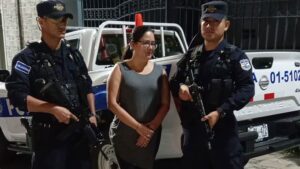On October 9, the Arusha Initiative hosted its first-ever Town hall focused on raising awareness around the integral role of human rights mechanisms in promoting human rights in Africa. This incredible event brought together members of the initiative and other people passionate about human rights, from advocates to community leaders and representatives of leading human rights organizations. The Arusha Initiative Townhall presented a forum where participants engaged in significant discussions about pressing human rights issues such as protecting civic space and access to justice.
The Arusha Initiative is a rights-holders movement for a more transparent, merit-based, and participatory process for nominating and selecting members of the human rights mechanisms in Africa. Established in October 2021, the Initiative facilitates widespread engagement in selecting leaders of the African Commission on Human and People’s Rights, the African Court on Human and Peoples’ Rights, and the African Committee of Experts on the Rights and Welfare of the Child. In 2024, the Arusha Initiative provided a platform for African rights holders to suggest candidates and urge their state representatives to select the best candidates for the July 2024 African Court elections.
Over 90 participants gathered at the Arusha Initiative Townhall, creating a diverse assembly of voices from a wide range of African nations, including Ethiopia, Zimbabwe, South Africa, Kenya, Tanzania, Uganda, Niger, Nigeria, Gambia, Morocco, Sudan, among many others. The town hall also welcomed a global audience, with participants from nations such as the United States, France, Canada, the United Kingdom, and the Netherlands. The event made clear that people from all around the world are invested in these conversations.
A distinguished voice at the town hall was Dr. Japhet Biegon, the Africa Regional Advocacy Coordinator for Amnesty International. He discussed the importance of the African Human Rights System to peace and prosperity in Africa and presented three pillars for those serving in the African Human Rights systems: competence, moral probity, and independence and impartiality. He stated, “This is at the heart of the Arusha Initiative.”
While recognizing the system’s limitations, Dr. Biegon highlighted the significant progress achieved over the years, mainly due to the persistent efforts of civil society. He urged participants to continue their engagement with the system, stating, “Given these low moments, we might ask ourselves: should we continue to engage this system? Is it worth engaging in this system? Time and time again, I say to myself: yes.” – This powerful statement serves as a reminder that our efforts can indeed effect change, even when facing setbacks.
Nevertheless, Dr. Biegon also emphasized the need to exercise caution as, whilst there may be significant advancements in human rights, he stated that progress in human rights should never be taken for granted. “The gains we have achieved can easily be undone,” Dr. Biegon’s call for vigilance reminds us that advocacy is not a one-time effort but a continuous process that requires commitment from all those it affects.
The discussions at the town hall reinforced the urgent need for sustained awareness building and interest by rights holders in the African Human Rights landscape. Participants shared that the session was incredibly insightful, highlighting that the goals and objectives of the Arusha Initiative are important. In a poll conducted after the session, a majority of participants indicated that they would like the town hall to be held quarterly and will be willing to collaborate with the Initiative. Looking ahead to the coming year, the Arusha Initiative plans to implement several key projects aimed at encouraging popular participation in the elections to the human rights mechanisms.. These projects include launching more awareness-building initiatives, social media engagements, and planning toward vacancies in 2025 and 2026.. The Arusha Initiative will also prioritize further engagement with the African Union’s Office of the Legal Counsel (OLC) and the Permanent Representatives Committee (PRC) to foster stronger collaboration and advocacy efforts.
In conclusion, the town hall not only served as a vital platform for dialogue and insight but also reinforced the commitment to continue working towards a more just and equitable Africa. The participation of dedicated advocates and organizations showcases the collective desire to enhance human rights mechanisms and ensure that progress is sustained.
Article written by Marcia Pascoa, Intern at RFK Human Rights.



